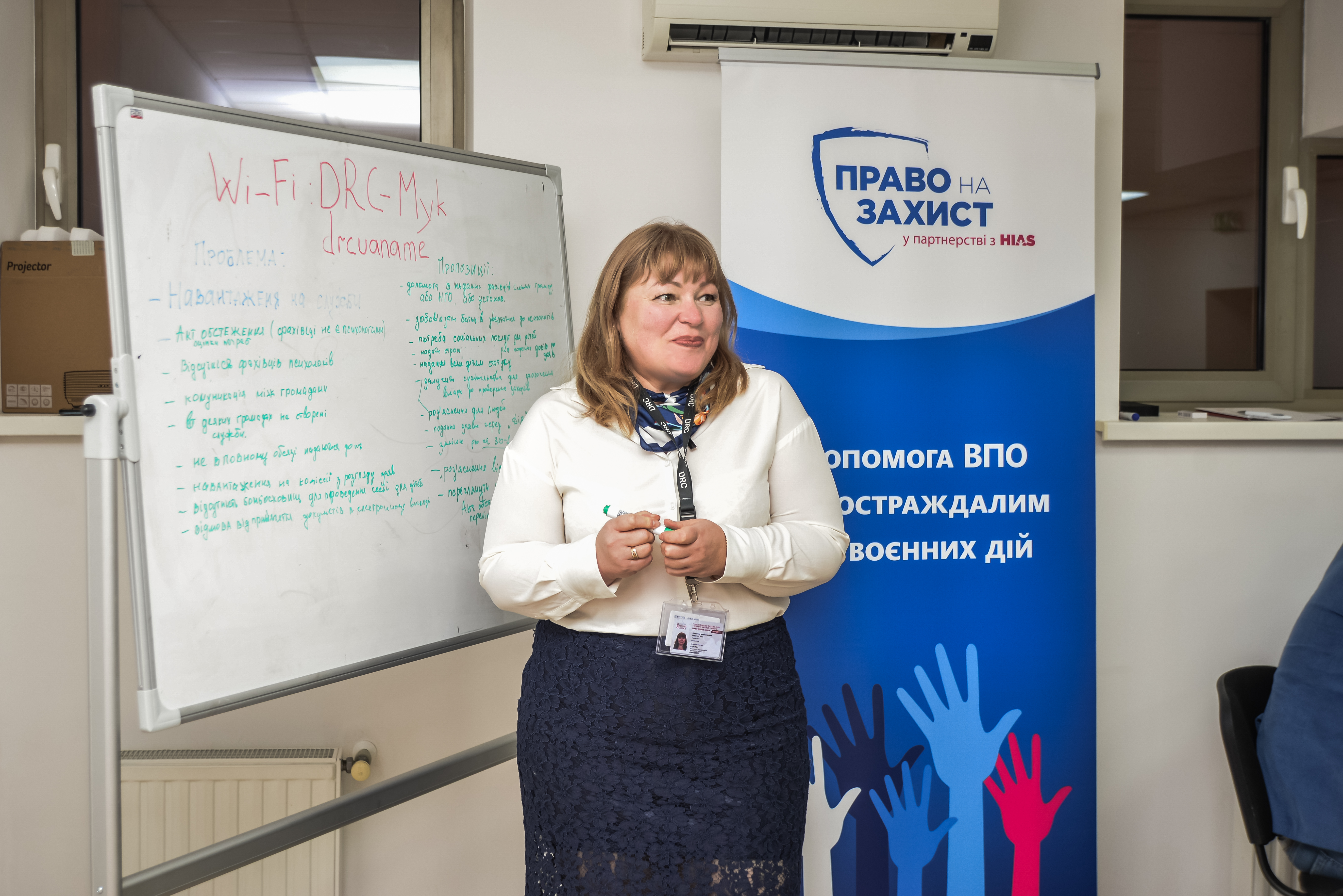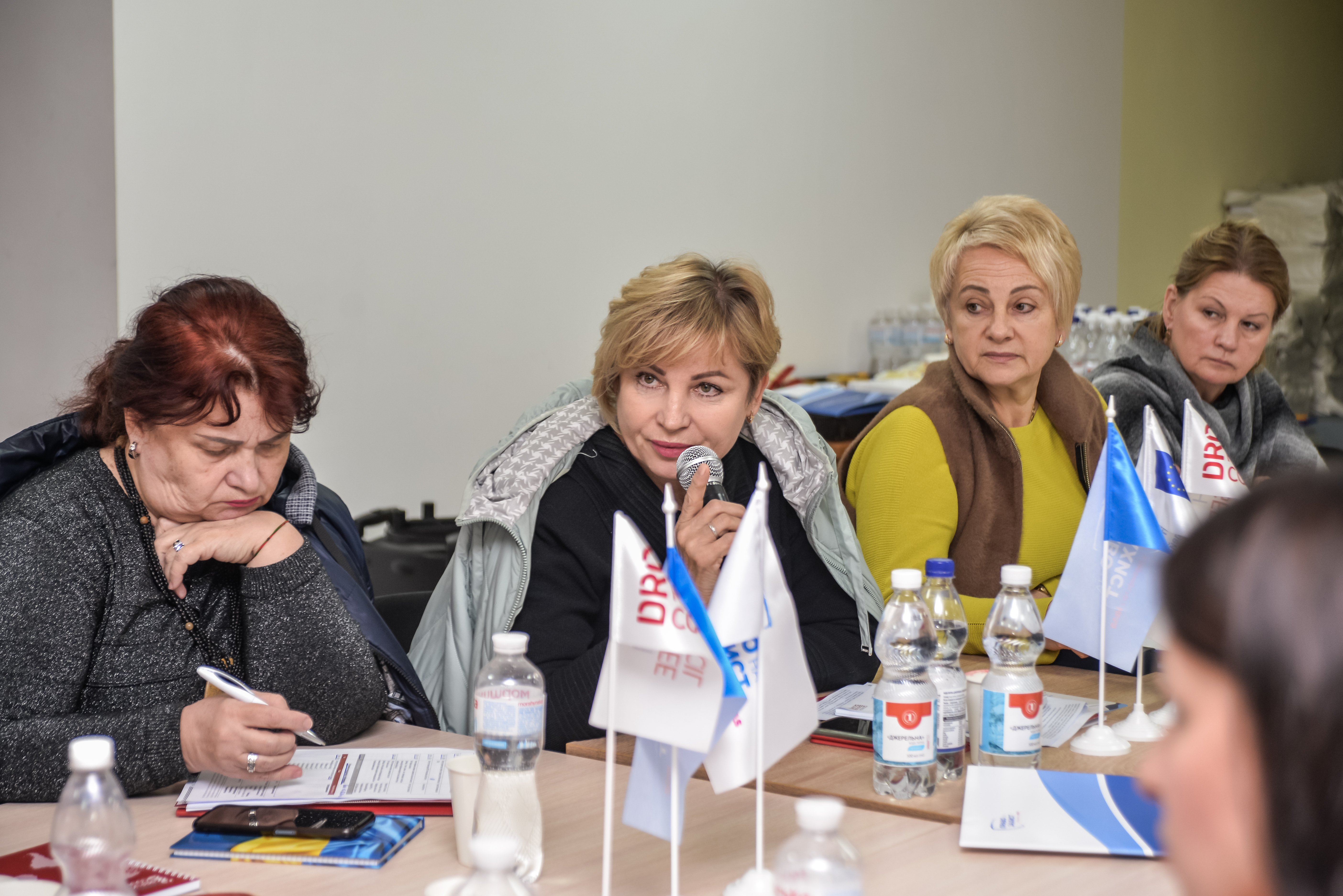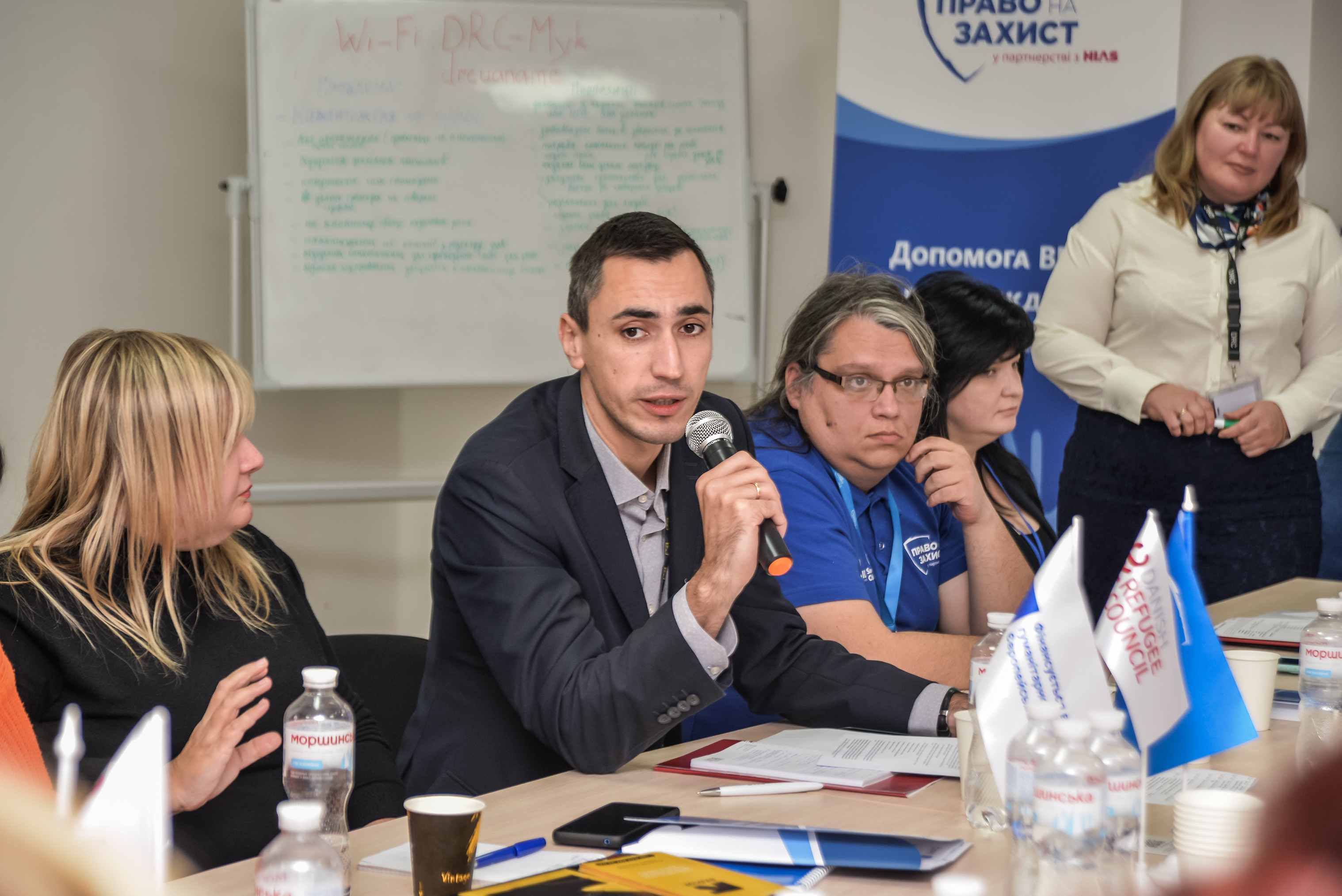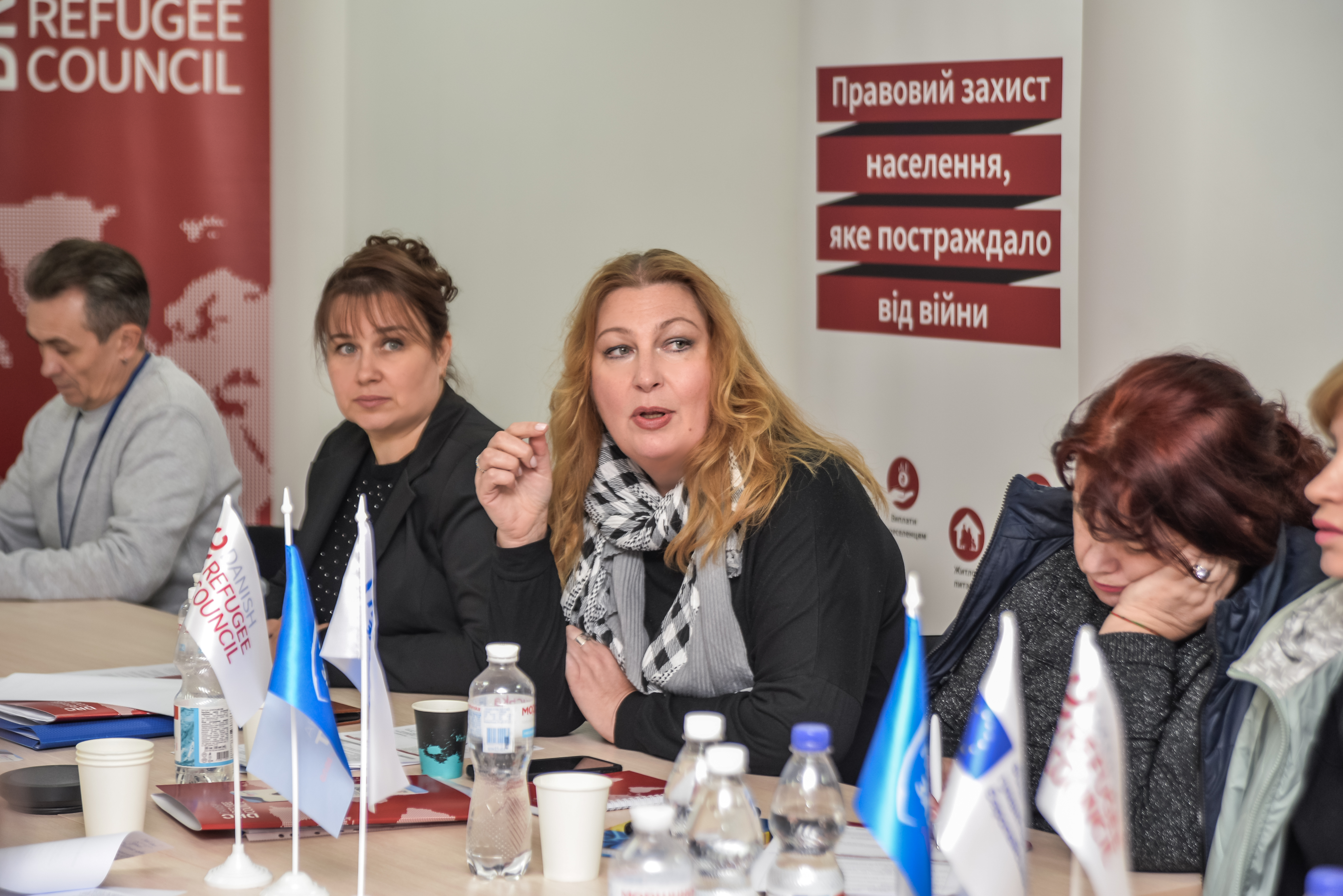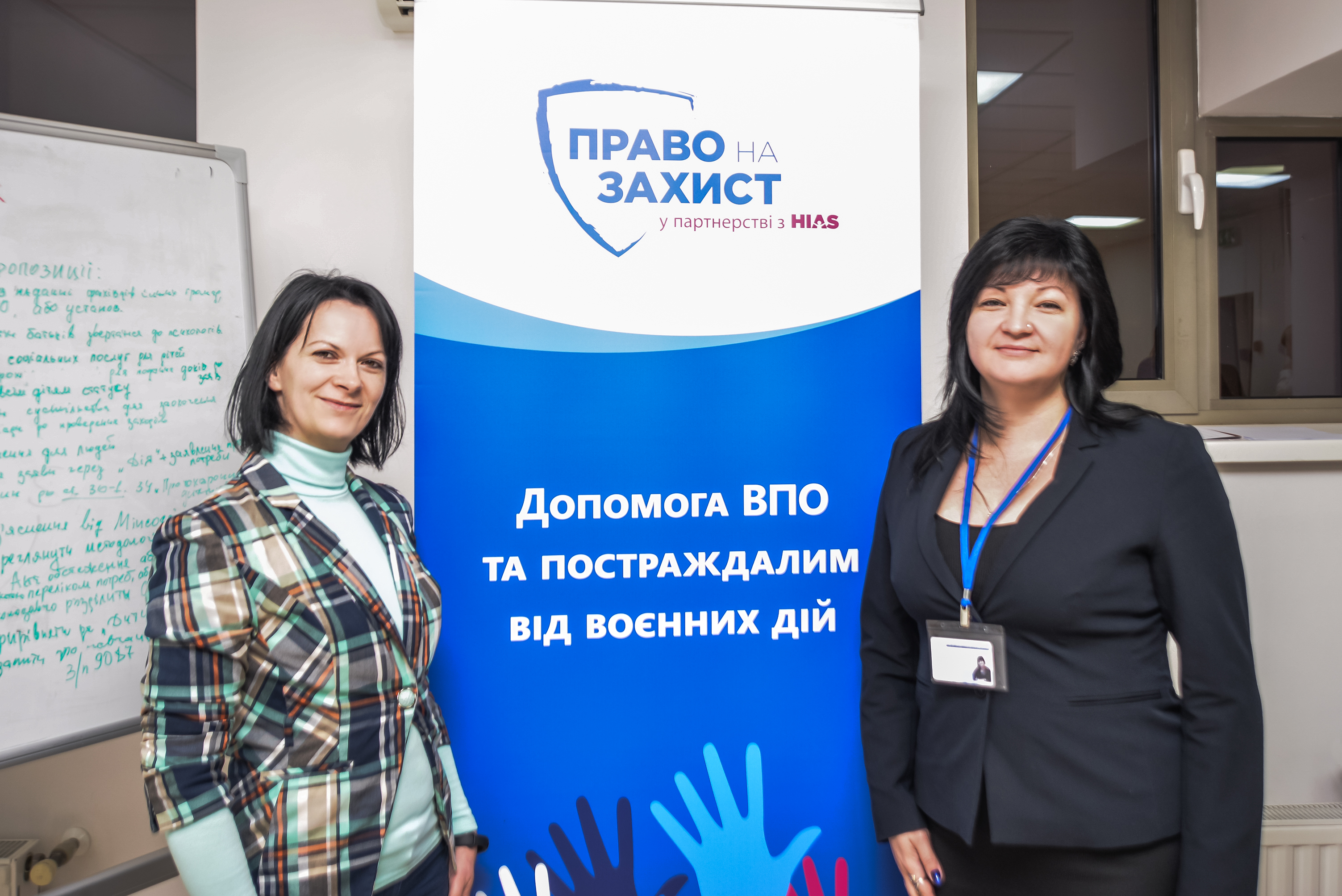-
На жаль, за вашим запитом нічого не знайдено, ви можете пошукати інше ключове слово, або звернутись до нас із вашим запитанням через форму зворотнього зв’язку
Результати пошуку (25)
Всі результати (25)
Mykolaiv hosted the roundtable discussion, The Status of Children Affected by the Hostilities in Ukraine and the Armed Conflict: Challenges and Prospects
21 листопада 2023
The roundtable discussion, The Status of Children Affected by the Hostilities in Ukraine and the Armed Conflict: Challenges and Prospects, was held by the Danish Refugee Council (DRC) and R2P in Mykolaiv.
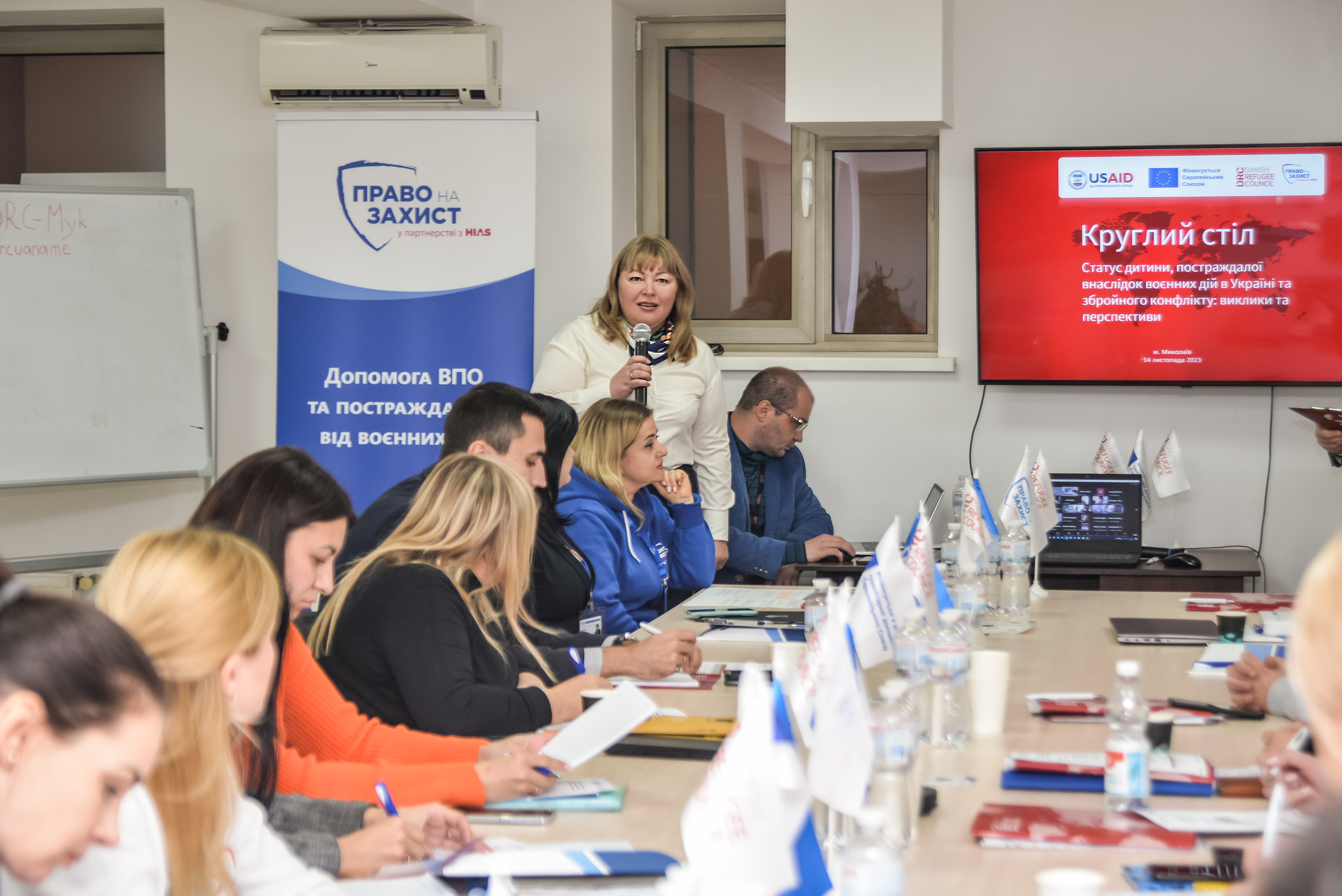
Representatives of local authorities and international, national and local NGOs working to protect children's rights in Mykolaivska oblast attended the event.
Senior lawyer Iryna Nikolenko opened the event on behalf of R2P. A representative of the Danish Refugee Council, Volodymyr Kryvoruchko, gave an overview of the current legislation on the status of children affected by war and armed conflict.
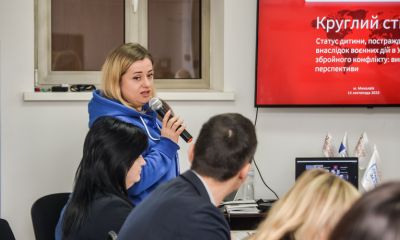
Ihor Vikhrov, a representative of the Office of the Ukrainian Parliament Commissioner for Human Rights in Mykolaivska oblast, noted that they are currently processing 9 appeals regarding the failure to grant this status.
The general information on the number of children in the oblast who received the status and the dynamics of appeals was provided by Iryna Ponomariova, Head of the Service for Children of Mykolaiv Regional State Administration, who drew attention to the increased workload on the services due to the procedure for granting the status and the need to draw up a needs assessment act as part of the package of documents for granting the status.
Oleh Lutsiv, Head of Social Protection Advocacy at R2P, focused on the problems of unifying the various statuses that can be established for a child affected by the hostilities in Ukraine under the current legislation. He emphasised its unsystematic nature and the need to fill the status of an affected child with a specific package of guarantees and services.
Maryna Us, Head of Child Protection Advocacy at R2P, spoke about the issue's global aspect and foreign countries' experience. She noted that international humanitarian law does not directly oblige states to establish a special status for children affected by armed conflict but emphasises the need for closer attention to them as one of the most vulnerable categories of the population in times of war.
As a result of the event, the participants will develop conclusions and recommendations for improving the relevant legislation.
This activity is made possible by the generous support of the American people through the United States Agency for International Development (USAID). The contents are the responsibility of R2P and do not necessarily reflect the views of USAID or the United States Government

